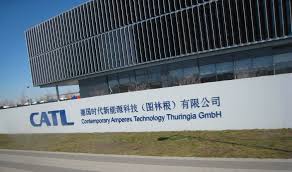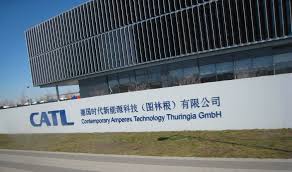
Despite headlines suggesting a slowdown in electric vehicle (EV) plans by automakers, recent months have seen encouraging developments in EV adoption. According to BNEF, EVs accounted for 20% of global vehicle sales in the last quarter of the previous year, with China and Europe leading the charge. Additionally, other markets experienced record-breaking quarters.
While attention on electric passenger vehicles is high, the electric commercial vehicle market also witnessed record sales in late 2023. China's long-standing efforts in this sector are paying off, with over 5,600 electric or fuel cell medium- and heavy-duty trucks sold in the final month of the year, comprising 10% of total sales. Overall, China saw over 330,000 commercial EV sales for the year, with light commercial EVs capturing 16% of the market share in December.
These numbers, while seemingly modest, are significant, especially considering heavy trucks were considered a challenging segment to electrify. The achievement of 10% market share indicates progress, positioning heavy trucks just a few years behind passenger cars in the electrification journey.
Notably, China's heavy-truck data reveals two compelling trends. Firstly, hydrogen fuel cells are gaining traction, with over 1,000 fuel cell-powered heavy trucks sold in December alone, spurred by generous incentives from the Chinese government. While challenges persist, the increasing adoption of fuel cell technology is promising, particularly in specific trucking applications.
Secondly, battery swapping is emerging as a catalyst for China's electric truck sales. Nearly half of all heavy battery electric trucks sold in China last year utilized swappable batteries, particularly in industrial settings and urban deliveries. This trend is expected to grow further as improved economics and stricter emission regulations favor electric models, although long-haul trucking remains a formidable challenge for electrification efforts.
Thus far, the focus remains primarily on China, buoyed by its homegrown industry leaders. CATL, the world's largest battery manufacturer, has been actively endorsing the battery swapping model in recent years, aiming to ensure the utilization of batteries in heavy-duty vehicles over competing alternatives.
Activity outside of China is relatively limited. In Europe, Iveco introduced an electric delivery van featuring three sizes of swappable batteries last year, while Mitsubishi Fuso is conducting trials with a battery-swapping truck in Japan. However, in the long run, pure battery-electric vehicles are likely to dominate, given the ongoing advancements in lithium-ion battery technology and the rapid increase in maximum charging speeds.
These developments indicate an imminent significant transition. China has been exploring various strategies to decarbonize heavy trucks over the past few years. As it achieves milestones in adoption, it will likely intensify efforts towards broader deployment, mirroring the trajectory observed in electric passenger cars. BNEF anticipates plug-in car sales to reach nearly 40% of the market in China this year.
While concerns about slowing electric car demand growth are being raised by Western automakers, other segments, such as heavy-duty vehicles, are just beginning to gain momentum.
While attention on electric passenger vehicles is high, the electric commercial vehicle market also witnessed record sales in late 2023. China's long-standing efforts in this sector are paying off, with over 5,600 electric or fuel cell medium- and heavy-duty trucks sold in the final month of the year, comprising 10% of total sales. Overall, China saw over 330,000 commercial EV sales for the year, with light commercial EVs capturing 16% of the market share in December.
These numbers, while seemingly modest, are significant, especially considering heavy trucks were considered a challenging segment to electrify. The achievement of 10% market share indicates progress, positioning heavy trucks just a few years behind passenger cars in the electrification journey.
Notably, China's heavy-truck data reveals two compelling trends. Firstly, hydrogen fuel cells are gaining traction, with over 1,000 fuel cell-powered heavy trucks sold in December alone, spurred by generous incentives from the Chinese government. While challenges persist, the increasing adoption of fuel cell technology is promising, particularly in specific trucking applications.
Secondly, battery swapping is emerging as a catalyst for China's electric truck sales. Nearly half of all heavy battery electric trucks sold in China last year utilized swappable batteries, particularly in industrial settings and urban deliveries. This trend is expected to grow further as improved economics and stricter emission regulations favor electric models, although long-haul trucking remains a formidable challenge for electrification efforts.
Thus far, the focus remains primarily on China, buoyed by its homegrown industry leaders. CATL, the world's largest battery manufacturer, has been actively endorsing the battery swapping model in recent years, aiming to ensure the utilization of batteries in heavy-duty vehicles over competing alternatives.
Activity outside of China is relatively limited. In Europe, Iveco introduced an electric delivery van featuring three sizes of swappable batteries last year, while Mitsubishi Fuso is conducting trials with a battery-swapping truck in Japan. However, in the long run, pure battery-electric vehicles are likely to dominate, given the ongoing advancements in lithium-ion battery technology and the rapid increase in maximum charging speeds.
These developments indicate an imminent significant transition. China has been exploring various strategies to decarbonize heavy trucks over the past few years. As it achieves milestones in adoption, it will likely intensify efforts towards broader deployment, mirroring the trajectory observed in electric passenger cars. BNEF anticipates plug-in car sales to reach nearly 40% of the market in China this year.
While concerns about slowing electric car demand growth are being raised by Western automakers, other segments, such as heavy-duty vehicles, are just beginning to gain momentum.


 China's CATL Leads Battery Swapping Revolution for Heavy Vehicles: A Game-Changer in EV Adoption
China's CATL Leads Battery Swapping Revolution for Heavy Vehicles: A Game-Changer in EV Adoption




 Companies
Companies